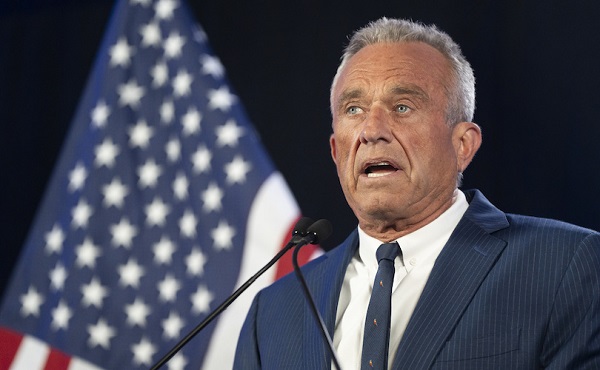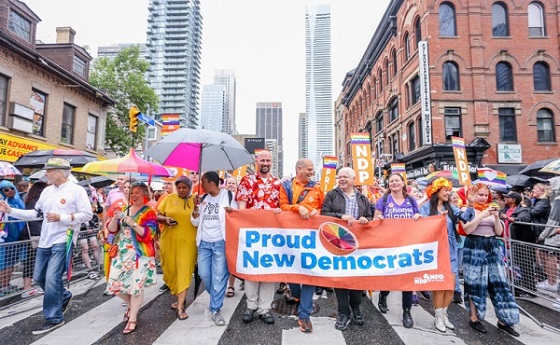Alberta
Norad, Haiti, migration, critical minerals to top agenda for Trudeau and Biden
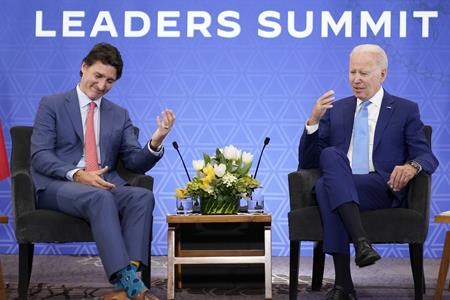
WASHINGTON — U.S. President Joe Biden is embarking on a 27-hour whirwind visit to Ottawa, where he will meet Friday with Prime Minister Justin Trudeau and speak to a joint session of Parliament — his first bilateral sojourn north as commander-in-chief.
Here are some of the issues the two leaders are likely to discuss:
Migration breakthrough: The two countries are already close to an agreement to expand the 2004 migration treaty known as the Safe Third County Agreement, which is designed to limit asylum claims in both countries but currently only applies to official entry points. As a result, critics say it encourages asylum seekers to enter Canada at unofficial border crossings, which allows them to make a claim. Sources familiar with the details say the two sides have been working on extending the agreement to cover the length of the Canada-U.S. border since the Summit of the Americas in Los Angeles last June. Such an agreement would help resolve a major political headache for Trudeau, while giving Biden the political cover he would need to devote more spending to northern border security.
Modernizing Norad: Until last month, the binational early-warning system known as the North American Aerospace Defence Command might have been best known for tracking Santa Claus on Christmas Eve. But a February flurry of unidentified flying objects drifting through North American airspace, most notably what U.S. officials insist was a Chinese surveillance balloon, exposed what Norad commander Gen. Glen VanHerck described as a “domain awareness gap”: the archaic, Cold War-era system’s ability to track small, high-flying, slow-moving objects. Coupled with the brazen ambitions of Russian President Vladimir Putin, the ongoing but largely opaque joint effort to upgrade Norad — rarely mentioned in past Trudeau-Biden readouts — is suddenly front and centre for both governments. Media reports suggest Canada could agree to an accelerated timeline.
Helping Haiti: The list of foreign-policy hotspots around the world that instantly bring Canada to mind is a short one, but Haiti is surely near the top. And as Haiti has descended ever deeper into lawlessness in the wake of the 2021 assassination of president Jovenel Moise, the need for military intervention has been growing — and some senior U.S. officials have expressly name-checked Canada as the perfect country to lead the effort. Trudeau’s response has been diplomatic but firm: the crisis is best addressed from a distance. “Canada is elbows deep in terms of trying to help,” he said last month. “But we know from difficult experience that the best thing we can do to help is enable the Haitian leadership … to be driving their pathway out of this crisis.” Military experts in Canada say the Canadian Armed Forces are in no state to be able to lead any sort of intervention. U.S. officials said Wednesday they are pursuing a solution with urgency, but insist the discussions are multilateral in nature and will have to involve Haiti itself, and perhaps even the United Nations.
Mission-critical minerals: No high-level conversation between the U.S. and Canada these days would be complete without talking about critical minerals, the 21st-century rocket fuel for the electric-vehicle revolution that Trudeau calls the “building blocks for the clean economy.” Canada has the minerals — cobalt, lithium, magnesium and rare earth elements, among others — and a strategy to develop them, but the industry is still in its infancy and the U.S. wants those minerals now. The issue has profound foreign-policy implications: China has long dominated the critical minerals supply chain, something the Biden administration is determined to change. “This really is one of the most transformative moments since the Industrial Revolution,” said Helaina Matza, the State Department’s deputy special co-ordinator for the G7’s Partnership for Global Infrastructure and Investment. “We understand that we can’t do it alone.”
Water, water everywhere: Canada and the U.S. have been negotiating since 2018 to modernize the Columbia River Treaty, a 1961 agreement designed to protect a key cross-border watershed the size of Texas in the Pacific Northwest. Despite 15 separate rounds of talks, progress has been middling at best. Meanwhile, Canada is under U.S. pressure to allow the International Joint Commission — the investigative arm of a separate 1909 boundary waters agreement — to investigate toxic mining runoff in the B.C. Interior that Indigenous communities on both sides of the border say has been poisoning their lands and waters for years. Add to all of that the mounting pressure on Canada to supercharge efforts to extract and process critical minerals, and the plot promises to thicken.
Border blues: The flow of irregular migration isn’t the only bilateral issue focused on the border. Critics on both sides say travel between the two countries hasn’t been the same since the COVID-19 pandemic. The Nexus trusted-traveller program, a popular fast-tracking system in Canada, broke down last year amid a dispute over U.S. border agents working on Canadian soil; the fix is widely seen as less streamlined than the old system. Many of those same critical voices are taking issue with Canada’s imposed new tax measures to discourage foreigners from owning real estate north of the border; some on Capitol Hill have been vociferous in pressing the Biden administration to demand an exemption.
A trade deal by any other name: Regardless of what the two leaders end up talking about, it will happen within the framework of the U.S.-Mexico-Canada Agreement, known in Canada as CUSMA. The USMCA era of continental trade, which began in earnest in 2020, has not been without its hiccups, including disputes over U.S. access to Canada’s dairy market and the way the U.S. defines foreign automotive content. The Biden administration is also staunchly opposed to Canada’s plans for a digital services tax, which it considers a violation. The agreement is due to be reviewed in 2026, and a lot could happen — especially on Capitol Hill and in the White House — between now and then. It’s also worth noting that while it’s not covered by the trade deal, the softwood lumber dispute remains a perennial irritant. International Trade Minister Mary Ng met earlier this month with industry leaders to discuss “unwarranted and illegal U.S. duties” on softwood lumber, vowing that a solution that protects Canadian jobs “is the only resolution that we will accept.” In other words, don’t hold your breath for a breakthrough on a dispute “that’s been going on since Adam and Eve,” said Tony Wayne, a former U.S. ambassador to Mexico and the former U.S. assistant secretary of state for economic and business affairs.
This report by The Canadian Press was first published March 23, 2023.
James McCarten, The Canadian Press
Alberta
Equalization program disincentivizes provinces from improving their economies

From the Fraser Institute
By Tegan Hill and Joel Emes
As the Alberta Next Panel continues discussions on how to assert the province’s role in the federation, equalization remains a key issue. Among separatists in the province, a striking 88 per cent support ending equalization despite it being a constitutional requirement. But all Canadians should demand equalization reform. The program conceptually and practically creates real disincentives for economic growth, which is key to improving living standards.
First, a bit of background.
The goal of equalization is to ensure that each province can deliver reasonably comparable public services at reasonably comparable tax rates. To determine which provinces receive equalization payments, the equalization formula applies a hypothetical national average tax rate to different sources of revenue (e.g. personal income and business income) to calculate how much revenue a province could generate. In theory, provinces that would raise less revenue than the national average (on a per-person basis) receive equalization, while province’s that would raise more than the national average do not. Ottawa collects taxes from Canadians across the country then redistributes money to these “have not” provinces through equalization.
This year, Ontario, Quebec, Manitoba and all of Atlantic Canada will receive a share of the $26.2 billion in equalization spending. Alberta, British Columbia and Saskatchewan—calculated to have a higher-than-average ability to raise revenue—will not receive payments.
Of course, equalization has long been a contentious issue for contributing provinces including Alberta. But the program also causes problems for recipient or “have not” provinces that may fall into a welfare trap. Again, according to the principle of equalization, as a province’s economic fortunes improve and its ability to raise revenues increases, its equalization payments should decline or even end.
Consequently, the program may disincentivize provinces from improving their economies. Take, for example, natural resource development. In addition to applying a hypothetical national average tax rate to different sources of provincial revenue, the equalization formula measures actual real-world natural resource revenues. That means that what any provincial government receives in natural resource revenue (e.g. oil and hydro royalties) directly affects whether or not it will receive equalization—and how much it will receive.
According to a 2020 study, if a province receiving equalization chose to increase its natural resource revenues by 10 per cent, up to 97 per cent of that new revenue could be offset by reductions in equalization.
This has real implications. In 2018, for instance, the Quebec government banned shale gas fracking and tightened rules for oil and gas drilling, despite the existence of up to 36 trillion cubic feet of recoverable natural gas in the Saint Lawrence Valley, with an estimated worth of between $68 billion and $186 billion. Then in 2022, the Quebec government banned new oil and gas development. While many factors likely played into this decision, equalization “claw-backs” create a disincentive for resource development in recipient provinces. At the same time, provinces that generally develop their resources—including Alberta—are effectively punished and do not receive equalization.
The current formula also encourages recipient provinces to raise tax rates. Recall, the formula calculates how much money each province could hypothetically generate if they all applied a national average tax structure. Raising personal or business tax rates would raise the national average used in the formula, that “have not” provinces are topped up to, which can lead to a higher equalization payment. At the same time, higher tax rates can cause a decline in a province’s tax base (i.e. the amount of income subject to taxes) as some taxpayers work or invest less within that jurisdiction, or engage in more tax planning to reduce their tax bills. A lower tax base reduces the amount of revenue that provincial governments can raise, which can again lead to higher equalization payments. This incentive problem is economically damaging for provinces as high tax rates reduce incentives for work, savings, investment and entrepreneurship.
It’s conceivable that a province may be no better off with equalization because of the program’s negative economic incentives. Put simply, equalization creates problems for provinces across the country—even recipient provinces—and it’s time Canadians demand reform.
Alberta
Provincial pension plan could boost retirement savings for Albertans
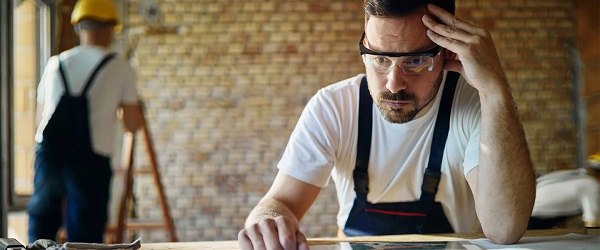
From the Fraser Institute
By Tegan Hill and Joel Emes
In 2026, Albertans may vote on whether or not to leave the Canada Pension Plan (CPP) for a provincial pension plan. While they should weigh the cost and benefits, one thing is clear—Albertans could boost their retirement savings under a provincial pension plan.
Compared to the rest of Canada, Alberta has relatively high rates of employment, higher average incomes and a younger population. Subsequently, Albertans collectively contribute more to the CPP than retirees in the province receive in total CPP payments.
Indeed, from 1981 to 2022 (the latest year of available data), Alberta workers paid 14.4 per cent (annually, on average) of total CPP contributions (typically from their paycheques) while retirees in the province received 10.0 per cent of the payments. That’s a net contribution of $53.6 billion from Albertans over the period.
Alberta’s demographic and income advantages also mean that if the province left the CPP, Albertans could pay lower contribution rates while still receiving the same retirement benefits under a provincial pension plan (in fact, the CPP Act requires that to leave CPP, a province must provide a comparable plan with comparable benefits). This would mean Albertans keep more of their money, which they can use to boost their private retirement savings (e.g. RRSPs or TFSAs).
According to one estimate, Albertans’ contribution rate could fall from 9.9 per cent (the current base CPP rate) to 5.85 per cent under a provincial pension plan. Under this scenario, a typical Albertan earning the median income ($50,000 in 2025) and contributing since age 18, would save $50,023 over their lifetime from paying a lower rate under provincial pension plan. Thanks to the power of compound interest, with a 7.1 per cent (average) nominal rate of return (based on a balanced portfolio of investments), those savings could grow to nearly $190,000 over the same worker’s lifetime.
Pair that amount with what you’d receive from the new provincial pension plan ($265,000) and you’d have $455,000 in retirement income (pre-tax)—nearly 72 per cent more than under the CPP alone.
To be clear, exactly how much you’d save depends on the specific contribution rate for the new provincial pension plan. We use 5.85 per cent in the above scenario, but estimates vary. But even if we assume a higher contribution rate, Albertan’s could still receive more in retirement with the provincial pension plan compared to the current CPP.
Consider the potential with a provincial pension contribution rate of 8.21 per cent. A typical Albertan, contributing since age 18, would generate $330,000 in pre-tax retirement income from the new provincial pension plan plus their private savings, which is nearly one quarter larger than they’d receive from the CPP alone (again, $265,000).
Albertans should consider the full costs and benefits of a provincial pension plan, but it’s clearly Albertans could benefit from higher retirement income due to increased private savings.
-

 Alberta2 days ago
Alberta2 days agoAlberta deserves a police force that actually reflects its values
-

 Crime1 day ago
Crime1 day agoFormer NYPD Inspector Breaks Down How Charlie Kirk’s Shooter Will Be Caught
-
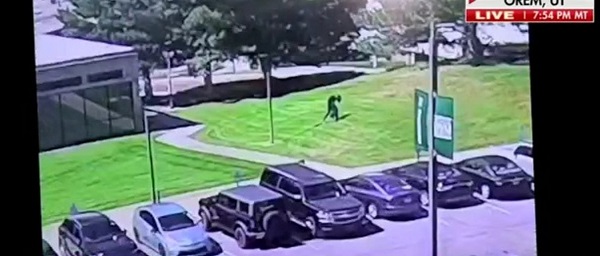
 Crime1 day ago
Crime1 day agoSurveillance video shows Charlie Kirk’s killer slipping away moments after shooting
-
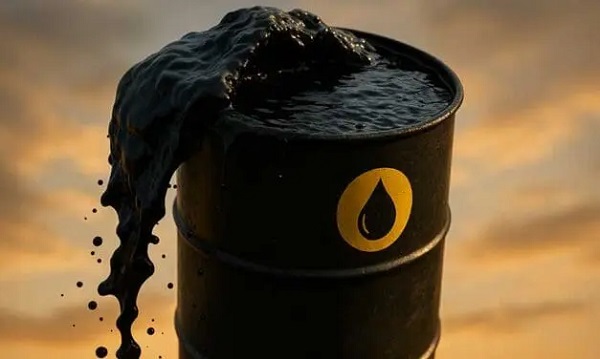
 Alberta2 days ago
Alberta2 days agoOPEC+ chooses market share over stability, and Canada will pay
-

 Crime1 day ago
Crime1 day agoFBI offering $100,000 reward for information leading to arrest of Charlie Kirk Assassin
-

 Censorship Industrial Complex1 day ago
Censorship Industrial Complex1 day agoUK’s top cop wants to ‘stop policing tweets’: report
-
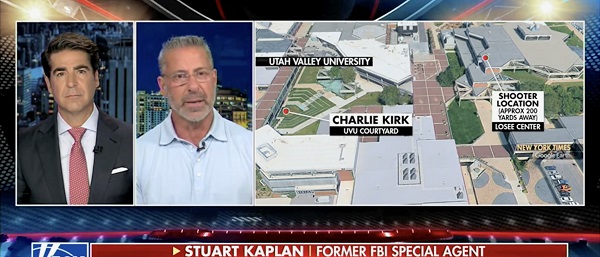
 Crime2 days ago
Crime2 days agoFormer FBI Agent Says Charlie Kirk Assassination May Have Been ‘A Professional Hit’
-

 Crime17 hours ago
Crime17 hours agoArrest made in Charlie Kirk assassination



